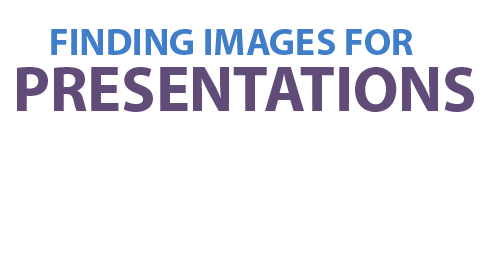- FAQs
-
Ask an Expert
Ask an Expert
Ask an expert about access to resources, publishing, grants, and more.
MD Anderson faculty and staff can also request a one-on-one consultation with a librarian or scientific editor.
- Library Calendar
-
Off Campus Login
Log in to the Library's remote access system using your MyID account.

- Research Medical Library
- Education Hub
- Quick Help Videos and Guides
- Copyright
- Copyright for Presentations
Copyright for Presentations
When developing a presentation, copyright license should be reviewed for all images, figures, tables, and other content used in the course of your presentation. There are differences in how materials can be reused for internal versus external presentations.
Educational Presentations
Copyright should be reviewed when you use an image, figure, table, music, art, etc. for an educational presentation. You must review the four factors of fair use for each work you use to ensure you are using it appropriately. A best practice is to always ensure that the reused work is relevant to the content of the presentation, is a small portion of the work, it will not be used commercially, and it will not affect the owner’s ability to earn money. Learn more about the four factors. View our handout on copyright for presentations.
External Presentations
Presentations that happen outside of an educational setting, this includes academic conferences, can be viewed as having a commercial benefit to the presenter or organization hosting the presentation.
To reuse content for a non-educational presentation, you must obtain copyright permissions form publishers and/or creators before using their work. The only exception to this would be works listed as “public domain” or works with the appropriate “creative commons” license.
Most publishers require you to request permission to reuse content from the journal article through the Copyright Clearance Center. For journal articles, look for a link titled “Rights and permissions,” or “Permission to re-use content,” or something similar. This will guide you to permissions information. Most authors do not retain the copyright of their published works, which means, from a legal perspective, the permission you need is from the publisher of the text. Most open access articles are published under a Creative Commons license and allow anyone to use the material as long as the terms of the license are followed. Terms usually include attribution and non-commercial use. View our handout on copyright for presentations.

